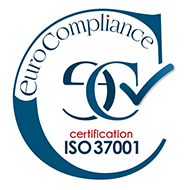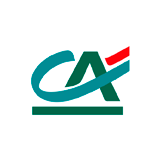Compliance
Credit Agricole Bank (hereinafter – Bank) as part of the international Group Credit Agricole is committed to put compliance at the heart of its development. Servicing our clients in full compliance with regulations and in accordance with the highest ethical standards of customer protection and transparency are key pillars of Credit Agricole Bank’s strategy. Credit Agricole Bank implements and regularly updates its internal procedures, in accordance with International and Ukrainian regulations and standards.
Code of Ethics of Crédit Agricole Group
Since 2017, the entities of the Crédit Agricole Group have been governed by a common Code of Ethics, which affirms our commitments, our identity, and defines our fundamental values. The Crédit Agricole Group is united by a shared Raison d’Etre, adherence to which signifies the integration of an ethical component in all activities of the Group and its entities at all times.
The Crédit Agricole Group Code of Ethics stipulates that the core values for any Group entity worldwide are customer focus, responsibility, and solidarity. This document establishes principles for action and conduct to be adhered to in relations with our clients and all stakeholders, including employees, suppliers of goods and services, government representatives, associations and non-governmental organizations, shareholders, and investors.
Code of Conduct of Crédit Agricole Bank
The Code of Conduct of Credit Agricole Bank puts into practice the commitments of the Bank and its employees as defined in the Code of Ethics. In addition to compliance with the legal, regulatory, and professional rules governing the various activities of the Bank, the Code of Conduct, approved by the Bank's Supervisory Board, reflects our aspiration to be a reliable partner and to provide high-quality service to the Bank's clients.
This document has been created to implement the historical values of the Group into the Bank's operations through a structured ethical approach. The Code of Conduct serves as a guideline for daily actions and decision-making and is an instrument for ensuring professional behavior in accordance with the ethics and values of the Bank and the Group.
Anti-Money laundering and fight against terrorism
Credit Agricole Bank implements the Group procedures as well as strictly implements the Ukrainian regulations related to the fight against money-laundering and fight against terrorism financing, in particular the Ukrainian AML law as well as the NBU resolutions. Credit Agricole Bank pays high attention to the correct identification, verification and studying of its clients (KYC procedure). Besides, the Bank does not execute operations that present signs of risky and fictitious activities as defined by the National Bank of Ukraine (i.e. absence of economic justification, inconsistency between transaction and financial standing of a client, incomplete identification of ultimate beneficiary owner, transactions showing signs of tax avoidance, capital outflow or legalization of criminal outcomes, etc.). Credit Agricole Bank might ask its clients all necessary information to confirm legality of the transactions. Usage of the Bank’s services for prohibited or unusual operations or failure/refusal of a client to provide necessary information confirming legality of operations will lead to non-execution of the operations, closure of accounts and any other consequences described by Ukrainian regulations or the agreements. If You are aware of violations of the law and internal procedures in the field of anti-money laundering and fight against terrorism. You can report those facts with confidentiality through the external link located at the bottom of this webpage.
Ukrainian and International sanctions
Credit Agricole Bank strictly implements requirements of Ukrainian Law of Sanctions and does not execute operations that are prohibited or restricted. Besides, as part of international Group Credit Agricole, Credit Agricole Bank does not perform operations prohibited by United Nations, USA, European Union and the Policy of the Bank.
FATCA
FATCA (Foreign Account Tax Compliance Act) is a US regulation aiming to fight tax evasion by US citizens and US residents who hold financial assets outside the United States. The Internal Revenue Service (IRS U.S. tax authorities) has set up a framework to collect on a yearly basis from non-U.S. financial institutions information relating to foreign income and assets held by U.S. taxpayers outside the United States. This regulation requires financial institutions to put in place procedures to identify their U.S. clients and to report information.
Ukraine has signed the intergovernmental agreement with the U.S., which came into force on November 18, 2019, and has consented to be included in the list of countries published by the U.S. IRS on its website. As prescribed by Ukrainian legislation, Credit Agricole Bank applies the requirements related to the FATCA obligations.
In that respect, Credit Agricole Bank has registered itself on the U.S. IRS website (www.irs.gov) with the FATCA Status Registered Deemed-Compliant Financial Institution covered by a Model 1 IGA and has received CEQ4EV.00390.ME.804 as Global Intermediary Identification Number (GIIN).
Also, Credit Agricole Bank thanks its clients to inform the Bank about their tax obligations with the United States, to ensure full compliance with FATCA obligations.
Fight against corruption
Credit Agricole Bank applies a zero-tolerance policy concerning any type of corruption or bribery attempts. The Bank expects its employees, clients, suppliers, partners and any third-party interacting with the Bank to fight against corruption.

Credit Agricole Bank, like the Group Credit Agricole, is certified ISO 37001 by an independent external company for its anti-corruption system. This highlights the Group's and Bank’s determination and the quality of its program for preventing corruption (identification, and analysis of corruption risks, mitigation measures to reduce those risks). Credit Agricole Bank maintains an anti-corruption policy, approved by the Supervisory Board, which defines the general measures applicable to all Bank’s units.
In particular, the anti-corruption system is based on:
- a specific governance involving the Management Board and Supervisory Board of Credit Agricole Bank,
- a mapping of corruption risks,
- dedicated chapter of the Code of Conduct defining the expected behaviors of the Bank’s employees in the anti-corruption area,
- a Code of Conduct approved by the Supervisory Board of the Bank and defining the behaviors of the Bank’s employees in various domains, including anti-corruption,
- a training and awareness system for all employees
- a whistleblowing mechanism
The anti-corruption system is upgraded on a permanent basis to adapt to the environment and improve the prevention and detection mechanisms.
Bank’s employees play a key role in the Bank's policy on the fight against corruption. They are duty bound to act in a loyal and responsible manner. They are regularly informed on anti-corruption issues through training courses. If an employee is witness to an attempted or actual act of corruption, they can notify their manager or the company in a confidential and completely secure manner through the whistleblowing system.
Conflict of interest
The Conflict of Interests Policy of the Bank approved by the Supervisory Board of the Bank defines the rules applicable to the Bank’s employees to avoid situations of conflict of interest. Such Policy aims at ensuring proper governance of the Bank as well as to protect the client’s interests.
Informing Credit Agricole Bank about any violations of the law, ethical misconduct or event
Credit Agricole Bank takes into account very seriously any event that harms its values, ethical standards and reputation. If You are aware or witness of corruption acts, frauds, violations of laws and/or internal procedures, or any other inappropriate professional behavior of Bank’s employees which are in contradiction with the Credit Agricole Group’s Code of Ethics and/or the Code of Conduct of the Bank, You can report those facts with good faith, selflessly and sufficient details to the BKMS platform below. This platform used by Credit Agricole Group guarantees the confidentiality of the whistleblower, of the concerned persons and reported facts. The report will be analyzed with confidentiality by the Compliance team. BKMS system is accessible through internet, anywhere and at anytime. Report can be done in the system in 11 languages, including Ukrainian and English.
https://www.bkms-system.com/Groupe-Credit-Agricole/alertes-ethiques
NB: this link is to be used to reports facts that constitute a breach of regulations, ethics and values set in the Credit Agricole Code of Ethics.
For other topics concerning regular client services, please contact our Service Quality Team (all contact details are displayed on Credit Agricole Bank website).
Instructions for filling out self-assessment forms W-8BEN
Instructions for filling out self-assessment forms W-8BEN-E
Instructions for filling out self-assessment forms W-9

 Useful information
Useful information
 Useful information
Useful information
 Useful information
Useful information
 Useful information
Useful information
 Useful information
Useful information
 Useful information
Useful information
 Useful information
Useful information
 Useful information
Useful information
 Useful information
Useful information
 Useful information
Useful information
 Useful information
Useful information
 Useful information
Useful information
 Useful information
Useful information
 Useful information
Useful information
 Useful information
Useful information




